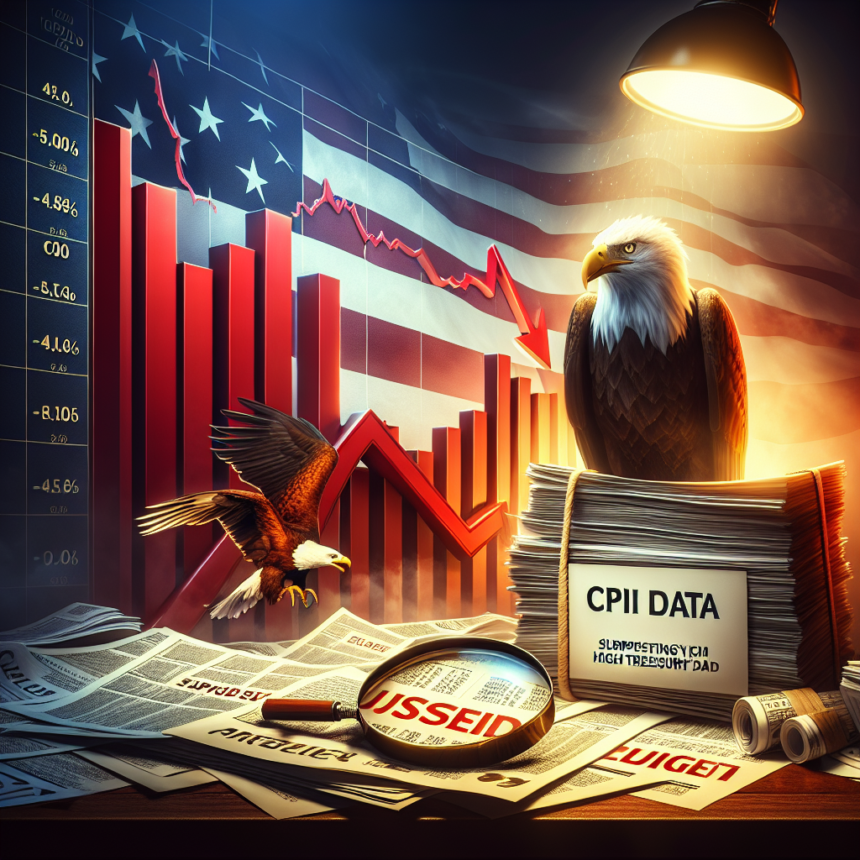Stocks on Wall Street took a tumble today as investors reacted to a report showing a higher-than-expected increase in consumer prices. The news of rising inflation sent shockwaves through the market, causing stock prices to plummet and Treasury yields to rise.
The Consumer Price Index (CPI) for the month of June came in at 0.9%, well above the 0.5% increase that economists had been expecting. This unexpected jump in prices sparked fears that inflation may be on the rise, prompting investors to sell off their stocks and seek safer investments like Treasury bonds.
The Dow Jones Industrial Average fell by over 300 points following the CPI report, marking its biggest single-day decline in over a month. The S&P 500 and Nasdaq Composite also saw losses of over 1% as investors expressed concerns about the impact of rising inflation on the economy.
The rise in Treasury yields was another sign of investors’ anxiety about inflation. As bond prices fell, yields moved higher, with the benchmark 10-year Treasury yield climbing to 1.42%, its highest level in over a month. This increase in yields reflects investor expectations of higher inflation and the possibility of the Federal Reserve raising interest rates sooner than anticipated.
The Federal Reserve has maintained that the recent spike in inflation is transitory and is largely due to temporary factors like supply chain disruptions and pent-up consumer demand. However, if inflation continues to accelerate, the Fed may be forced to reconsider its stance and take action to prevent prices from spiraling out of control.
In response to the CPI report, some economists are urging the Fed to start tapering its bond-buying program sooner rather than later. The central bank has been purchasing $120 billion in Treasury and mortgage-backed securities each month to support the economy during the pandemic. However, with the economy recovering and inflation picking up, some economists argue that the Fed should begin scaling back its asset purchases to prevent overheating.
Despite the market’s negative reaction to the CPI report, some analysts remain optimistic about the long-term outlook for stocks. They point to strong corporate earnings, robust economic growth, and low interest rates as reasons to stay invested in equities. While inflation may pose a challenge in the short term, they believe that the economy will ultimately weather this storm and continue to expand.
In my opinion, the recent uptick in inflation is a cause for concern, but not outright panic. It’s natural for prices to rise as the economy rebounds from the pandemic-induced downturn. However, if inflation continues to accelerate at a rapid pace, it could have detrimental effects on consumers’ purchasing power and overall economic stability.
I believe that the Federal Reserve must closely monitor the situation and be prepared to adjust its monetary policy as needed to keep inflation in check. Tapering its bond-buying program may be a necessary step to prevent inflation from spiraling out of control, but the Fed must proceed with caution to avoid derailing the fragile economic recovery.
Overall, while the market may experience volatility in the near term as investors grapple with the implications of rising inflation, I remain confident in the resilience of the U.S. economy and the ability of policymakers to navigate these challenges effectively.


